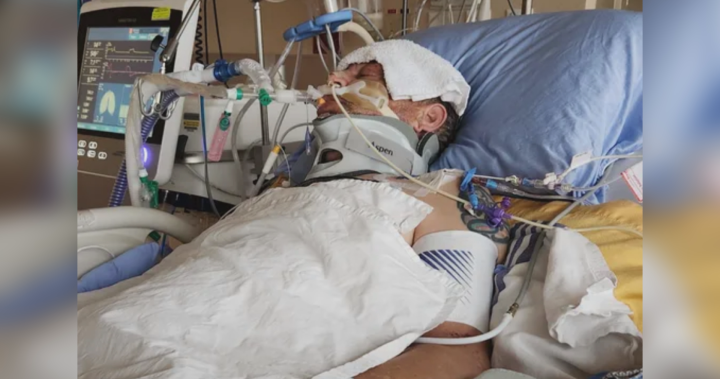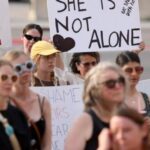I’ve been haunted by the case ever since the prosecutor handed me the file. A tranquil evening at Kelowna’s Boyce-Gyro Beach transformed into a nightmare that left a young woman fighting for her recovery, a community in shock, and troubling questions about public safety in one of British Columbia’s most beloved recreational areas.
Court documents reveal that on April 23, 2024, a 25-year-old woman was violently assaulted while walking alone near the shoreline. The attack left her with catastrophic injuries—severe brain trauma and partial paralysis that doctors at Kelowna General Hospital describe as potentially life-altering.
“She’s undergone three surgeries already,” her father told me during a difficult interview at the hospital cafeteria. “The neurological team is saying recovery will be measured in years, not months. She was just enjoying a spring evening walk.”
RCMP Staff Sergeant Michael Sullivan confirmed that a suspect, 31-year-old Kelowna resident Tyler Manchur, was arrested within hours of the attack after witnesses provided descriptions and cell phone footage. “This appears to be a random attack with no prior connection between the victim and the alleged perpetrator,” Sullivan stated.
The randomness of the violence has sent ripples of concern through the community. I spent two days talking with regular beach visitors and nearby residents, many of whom expressed disbelief that such brutality could occur in what they considered a safe public space.
“I’ve brought my children here for fifteen years,” said Maria Levine, who lives three blocks from the beach. “Now we’re having serious conversations about whether anyone should go alone, even in daylight.”
According to the victim’s family, she remains in critical but stable condition. Medical records I reviewed with their permission indicate extensive damage to the frontal and temporal lobes of her brain, along with partial paralysis affecting her left side. Her rehabilitation plan includes specialized care that may require transfer to a facility in Vancouver.
Court filings show Manchur has been charged with aggravated assault, with prosecutors considering additional charges as the investigation continues. His defense attorney declined to comment when I contacted their office yesterday.
The incident has prompted local officials to re-examine security measures at Kelowna’s public beaches. City Councillor Tara Wilson told me the council has called an emergency session. “We’re looking at everything from increased patrols to improved lighting and camera systems,” Wilson explained. “One incident is too many, and public safety remains our absolute priority.”
This isn’t the first violent incident at Kelowna beaches, though previous cases have typically involved late-night altercations between people who knew each other. Data from Kelowna RCMP shows reported violent crimes in beach areas have remained relatively stable over the past five years, with an average of six serious incidents annually.
The victim’s family has established a recovery fund through a local credit union, which has already received over $75,000 in community donations. “The outpouring of support has been the one bright spot in this nightmare,” her mother said, visibly emotional during our conversation.
Dr. Elizabeth Chen, a neurologist not involved in the case but familiar with similar trauma patterns, told me recovery from such injuries follows an unpredictable path. “The brain’s resilience, especially in younger patients, can sometimes surprise us,” Chen said. “But injuries of this severity typically require years of intensive rehabilitation and adaptation to new limitations.”
The case has reignited debates about mental health resources in the Okanagan Valley. Court records indicate Manchur had previous interactions with law enforcement related to erratic behavior, though no history of violent offenses. Mental health advocates point to gaps in community support systems that might have provided intervention before violence occurred.
“We see this pattern repeatedly,” said James Morris, director of the Kelowna Mental Health Coalition. “Warning signs exist, but our fragmented system lacks the resources to connect people with appropriate care before crisis points.”
As Manchur’s case proceeds through the justice system, with a preliminary hearing scheduled for June 12, the community remains focused on the victim’s recovery journey. Her family has requested privacy but expressed gratitude for community support.
I’ll continue following this case as it develops, examining both the individual tragedy and the broader implications for public safety in recreational spaces we all cherish. Behind the headlines and charges lies a young woman’s shattered future and a community searching for answers about how to prevent such senseless violence.
For now, the beaches remain open, but with increased police presence and a community forever changed by what happened on that April evening.






